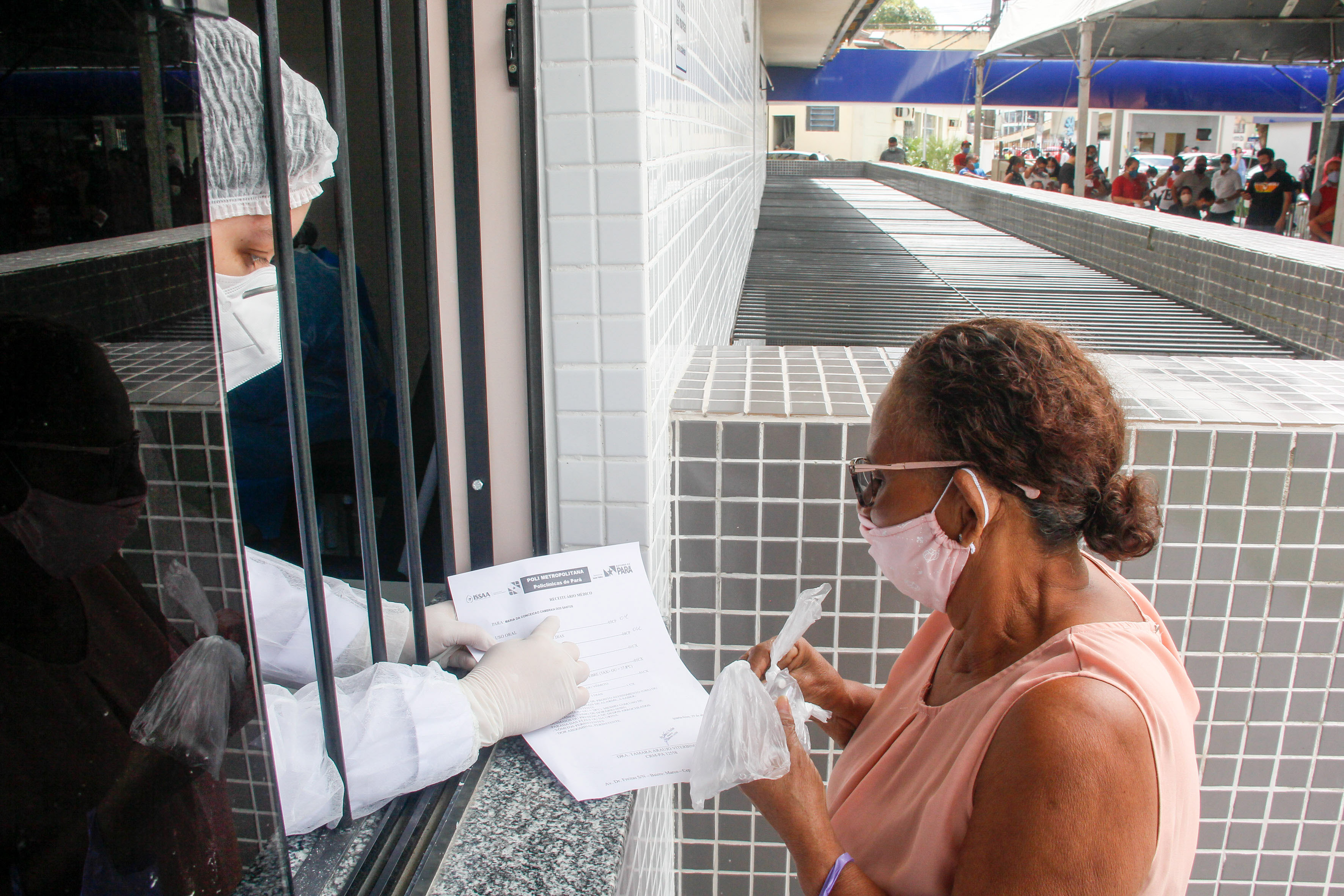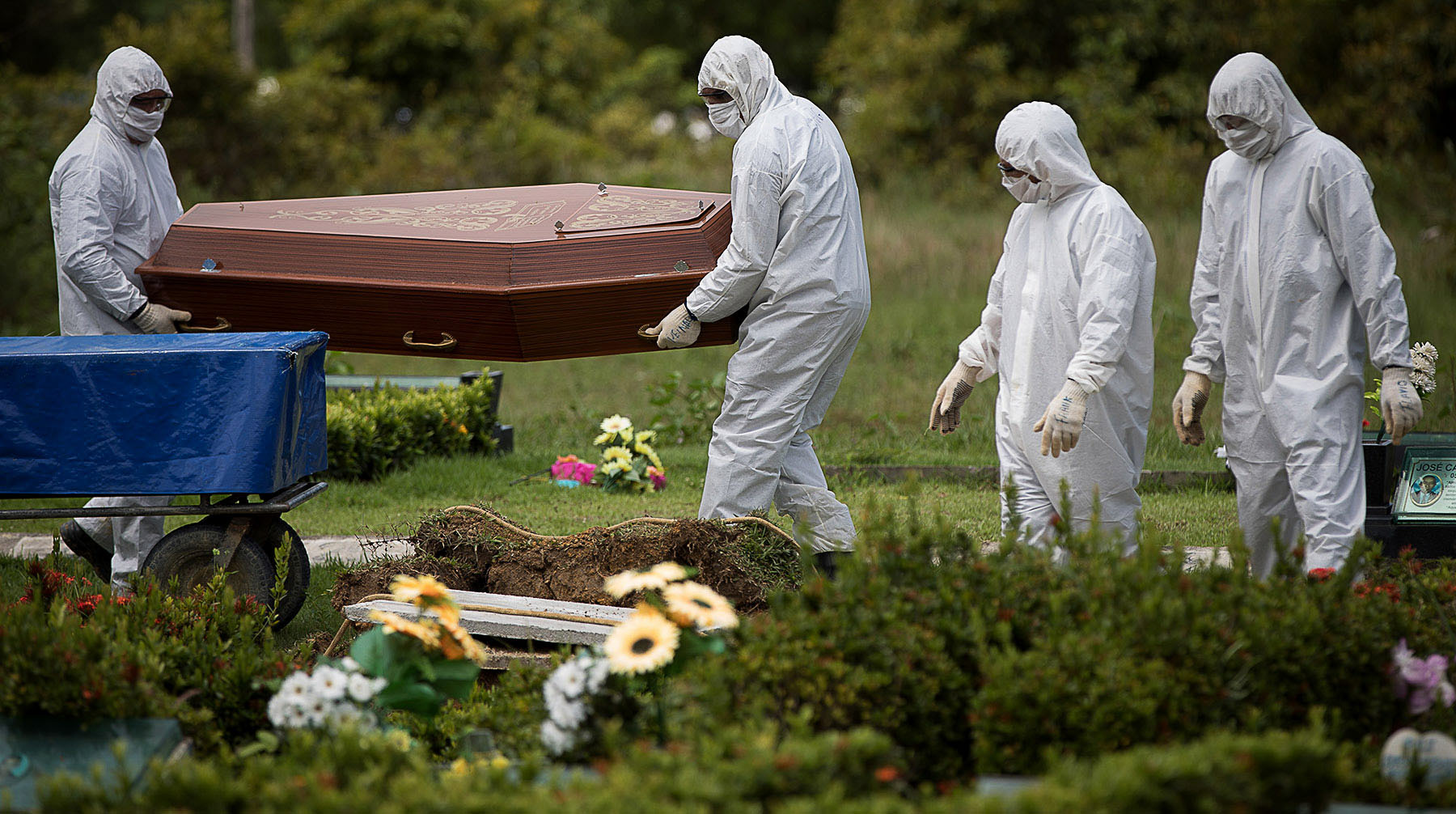18/05/2020 12:07
Aercio Barbosa de Oliveira¹
The impression that the presidency of Brazil is occupied by Thanatos seems fitting. In Greek mythology, Thanatos, the Grim Reaper, personified death, and in psychoanalysis he represents the death drive. Not that this image had not been pertinent before the Coronavirus pandemic. With the passing of time and the ever-growing number of lives reaped by Covid-19, however, it is clear that a sizeable share of our economic elites – striving to save their corporate IDs at whatever cost – along with the Brazilian social strata who feed on hatred, sexism, homophobia and racism, are asserting their internal Thanatos with frightening vigor.

Foto: Marcelo Seabra/Ag.Pará
Public authorities in many countries have decried the Brazilian government’s approach to the pandemic. Its indifference, its “So what?” demeanor, disconcerts officials of any ideological shade, as well as scientists, economists, intellectuals and anyone – conservative, liberal, socialist or communist – guided by the vaguest of humanistic values. The President’s “So What?” (and forgive me the semiologists and linguists for making such hasty use of two fundamental concepts from their fields of knowledge), when issued from the mouth of this particular Thanatos, seems to me to satisfy the functions of both symbol and index. As a symbol, it expresses a feeling of indifference, and as an index it intensifies that same feeling which has been hounding us for some time now, with straightforward bluntness. It works like a traffic sign with an arrow simply pointing you onward. In a setting where hundreds of thousands of Brazilians are expected to die, “So what?” says the solution is to disparage the lives of others and scrap all empathy. It is how we save the economy and corporate IDs, at the expense of personal IDs and of those who were never issued an ID at all.
In a neoliberal world, where everything has a price, whatever it be, and life goes on, the notion that dying is simply natural gained notoriety in a recent interview on CNN Brasil by the federal government’s Special Secretary of Culture. During Brazil’s military dictatorship (1964-1985), Regina Duarte became famous as “Brazil’s sweetheart” and, early in the late 1980s redemocratization process, she was nearly immortalized as lusty widow Porcina in the Roque Santeiro soap opera, written by an openly communist playwright, Dias Gomes. On May 7 this year, she said: “Sorry, guys, human beings just won’t stop dying. When you say life, death comes along.” She spoke in perfect harmony with President Thanatos. It sounded like a script they had agreed to at their last meeting. The apparent obviousness of observing that life and death are two sides of the same coin obscures the fact that, at this very moment, the federal government is signaling and taking measures that offer death as the best solution to “handle” the pandemic. Alternatives for living longer are limited, and out of the hands of the federal government. They might even come from the Supreme Court, Congress, state governments or city halls, but don’t look to the head of the National Executive Branch.

Manaus. Foto: Amazônia Real)
With Brazil’s authoritarian traditions and powers concentrated in the Union, the federal government holds the sole authority to broaden the monetary base, to organize and coordinate national health actions and effect social distancing, to implement policies such as the Food Acquisition Program’s food and nutritional security projects for thousands of families, to seek cooperation from other countries and multilateral agencies and to ensure relief funds for large numbers of precariously employed workers. In the logic of Thanatos, none of this has any value, since it would reduce the number of deaths and violate the natural order of things. Take the federal Caixa Econômica public bank, which cannot even organize an emergency bailout of R$600. People are put to shame in lines outside the bank branches, while exposing themselves to the coronavirus. “So what?” is the index forewarning us our only hope is to be lucky enough to survive Covid-19 at all.
But let’s face it, dying in Brazil did not become a routine yesterday, especially for the elites who hold economic power and work like puppeteers controlling their marionettes in political and court systems. That this elite is a beacon for much of our middle class is an unfortunate fact that only aggravates our moral morbidity. The pandemic actually seems to have redoubled the elites’ indifference to the death of anyone outside their own circle of family and friends. People who are not close are just numbers, statistics. If in doubt, just check the number of people murdered each year. They are young people and blacks from our cities’ slums and peripheries; women victims of domestic violence; people killed for publicly displaying their LGBT relationships; human rights defenders; indigenous people and quilombolas defending their territories and ways of life; journalists doing their work and so many others deliberately killed by readily-available executioners. The numbers are frightening.
As the Thanatos President and his helpers work hard to spread indifference to death, dark questions arise. Will the pandemic and all this turmoil heighten people’s contempt for life? Will our innate capacity for empathy, just as vital as our faculties for self-reflection and imagination, which have allowed our species to fitfully come as far as it has, succumb to this perverse confluence of Thanatos and Hades²? Besides accentuating our country’s socio-economic contradictions, which we must also denounce and address, the pandemic also threatens to amplify the spirit of Thanatos throughout society’s intersubjective relations.
May all the Orixás, the common good, good living and the good life prevail in this battle led by Eros³, to put an end to “So what?”!
[1] Coordinator of the FASE program in Rio de Janeiro and M.A. in philosophy.
[2] Greek god of the underworld, or kingdom of the dead.
[3] In Greek mythology, the god of love.










